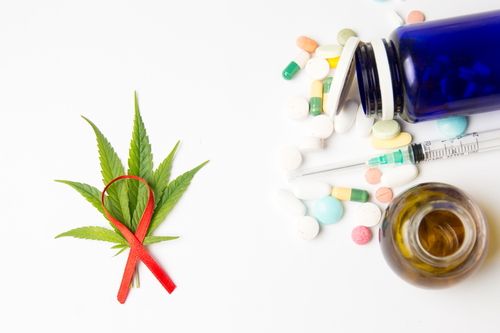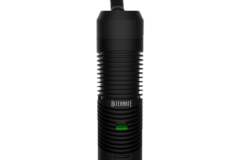Effects of Marijuana on Blood Pressure
More and more people are coping with hypertension. In lines with official information, one in three adults suffers from high blood pressure. As a result, people are curious if there is a link between blood pressure and smoking weed. Does it lower blood pressure, or does it contribute to increasing it? We’ll try to address this commonly met the question, Effects of Marijuana on Blood Pressure.
Marijuana and Blood Pressure
The way in which marijuana affects blood pressure is, without a doubt, complex. The evidence discloses information that may appear contradicting, at first glance. To that end, for a short period of time, there is a brief increase in blood pressure and heart rate, which are related to gender and lifestyle choices. Concurrently, smoking weed could potentially grow the heart rate, by as much as two times in approximately three hours.
Nonetheless, there are research studies featuring the long-term adverse and positive effects of smoking pot, which aren’t necessarily relevant. To be more precise, the findings collected from animal studies don’t always apply to human subjects. At the same time, there’s another issue – for one thing, the majority of research findings are generalized, concentrating primarily on THC, overseeing the properties linked to other cannabinoids.

marijuana affects your blood pressure
What Do We Know for Sure?
A question we have stumbled across a lot is does cannabis actually increase blood pressure? We already mentioned that, according to studies, immediately after consuming weed, a certain degree of blood pressure and heart rate increase will be observed.
However, in a few days or so, users might become tolerant of the original effects linked to smoking weed. As a matter of fact, regular consumption of marijuana has been correlated with lower heart rate and blood pressure. To be more precise, studies outline that cannabis can help people to maintain healthy blood pressure levels.
There is actually research suggesting that if marijuana is ingested in standing position, the original increase in blood sugar might be annulled. Anandamide, which is the body’s natural form of THC, determines the relaxation of the blood vessels, thus significantly minimizing the arterial pressure.
Still, as you might expect, the big picture is rather complicated. Although there are significant components, such as CBD and anandamide, that might reduce blood pressure, smoking weed with the full diversity of cannabinoids might have distinct consequences. To that end, it would be safe to say that smoking different strains of weed will have a different impact on blood pressure.
For example, Sativa strains might be more stimulating, whereas Indica strains are more relaxing. Therefore, considering that you’re worried about high blood pressure, the safe thing to do is to monitor your blood sugar when you ingest marijuana.
This way, you can see for yourself how it affects your body and your blood sugar and heart rate. The bottom line is that there is no answer that applies to all people. And while there is scientific evidence that sheds some light on the subject, the matter is too complex to make any assumptions that apply in all case scenarios.
How Long Does Weed Stay in Your Blood?
Many times, you might be required to take blood testing, for various reasons. For example, insurance companies might ask you to do a blood test. At the same time, current and future employees might require employees to undergo a blood test.
As a rule of thumb, cannabis leaves the blood relatively quick, Nonetheless, if you ingest cannabis on a regular basis, the process might take a bit longer.

Marijuana & Blood Pressure, Friends or Enemies?
Will it Stay in Your Blood forever?
once you consume marijuana, the cannabis you ingested is likely to remain in the blood for one or two days. Still, in the case of heavy consumers, it might last up to seven days. However, the truth is that there is no answer that applies to all people, as that will widely depend on your body type, the dosage, metabolism, as well as the amount of reefer you’ve used.
To that end, moderate and heavy marijuana consumers should abstain from smoking weed at least one week before taking a blood test. Typically, tests don’t depict the presence of the fundamental psychoactive in cannabis, namely tetrahydrocannabinol.
In fact, most blood tests look for the presence of a THC metabolite known as THC-COOH. That being said, after you inhale the herb, it will become noticeable in the blood, in significant concentrations only a few seconds after the consumption.
As for the active components of the plant, known as cannabinoids, the lungs absorb them and transfer them to the heart. This way, these active components become part of the bloodstream.
From that point onward, the cannabis is likely to impact the central system, as there is at least one compound, namely THC that has a psychoactive effect.
Therefore, the highest levels of THC in the bloodstream are monitored in five to ten minutes after the consumption. Then the blood levels for THC start diminishing, as other metabolites become more pregnant. Over time, though, cannabinoids are, once again, released into the blood, but the amount is minimized.
So, in comparison with urine or hair, cannabis remains present in the blood for more time. The bottom line is that THC levels don’t remain elevated for too long.
After that being said, considering that you know that you are required to take a blood test in the near future, you should keep in mind that it can take up to seven days for the cannabis traces to be eliminated. Plus, as a rule of thumb, if your tests are between 20 or 50 Nanograms per millimeter, you are likely to pass with flying colors.
When Does THC Leave Your System?
Every cannabis smoking guy or gal on the planet knows that THC is the main psychoactive compound in weed. The THC or, if you want to be more academic, delta-9-tetrahydrocannabinol, makes you kick the ground off.
Many youngsters enjoy marijuana but are somewhat scared of random drug checks when they’re hired. Since more and more companies do this, it’s important to know when your body will be THC-free.
The Not-So-Good-News
THC is also known as THC-COOH, the metabolite that results from THC once it’s broken down by the enzymes in your liver. The question of how long it stays in your system is virtually unanswerable.
Every person reacts to cannabis differently. Some get really high for hours while others barely feel the effects anymore, even if they smoke a couple of joints one after the other. It’s all about how much tolerance you have to weed.
In the light of this info, you can very well assume that there is no clear-cut answer to your question.
Tolerance plays an important role, of course, but so does metabolism, the power of the strain you’ve smoked and even the way you’ve taken it: did you ingest or smoke the marijuana?
Theoretically, those who have a high tolerance to THC simply metabolize it really quickly, because their bodies are accustomed to it. And even then, if you’re a hardcore smoker, the THC can be traceable in your body for months.

How Long Does Marijuana Stay in Your Blood?
What Happens If You’re Not an Every Day Smoker?
In this case, the THC might leave your body after about 5 days, average, but it can take up to two weeks also. It’s downright impossible to say for sure. If you have a pretty fast metabolism, you might get away with it in 4-5 days.
If you know there’s going to be a drug test, you should refrain from smoking any cannabis until you’ve passed it. There’s simply no way of knowing for how long the THC-COOH will be in your system.
Did you’ve already smoked and there’s a drug test just around the corner? there’s not much you can do but pray to God that your metabolism takes care of the THC-COOH. One thing you can do is drink lots of water. As much as possible.
This will dilute the urine in which traces of drugs will be searched for. Obviously, this won’t be of much help if there’s another drug testing method going on, like hair tests, for instance.

What Happens If You’re Not an Every Day Smoker?
The Worrying Conclusion
Unfortunately, nobody can say how long THC will stay in your body. It could take days, it could take weeks or even months, depending on how much you smoke on a regular basis.
The best way to nail a negative marijuana test is not to smoke it before the actual test. We know this article hasn’t been very reassuring, but this is the naked truth and it’s best to know it from the start.
Is It Possible for Marijuana to Cause Diarrhea?

Is It Possible for Marijuana to Cause Diarrhea?
The endocannabinoid system is responsible for various processes in the body – salivation, appetite, hunger, and satiety. These processes are facilitated by cannabinoid receptors – CB2 – which are distributed in the digestive system.
Marijuana users introduce additional cannabinoids in the form of CBD, which has various side effects. To people suffering from gastrointestinal disorders like IBS (Irritable Bowel Syndrome), IBD (Inflammatory Bowel Disease), cancer-related anorexia, cachexia and Crohn’s disease, marijuana use may help ease the conditions.
IBD, Crohn’s disease, and IBS are caused by a deficiency in cannabinoid receptors as a result of developmental problems during one’s childhood. Also, cannabinoids reduce inflammation of the GI tract and reduce the speed at which matter passes via the intestine; a condition known as intestinal motility.
Diarrhea and Marijuana
Medical marijuana is prescribed to treat diarrhea and constipation but in some cases. it is also known to cause these conditions. It is also prescribed to help patients cope with insomnia as it does not pose the long-term risks of sleeping pills.
The premise for marijuana leading to diarrhea has not been scientifically proven though studies show that THC slows down the digestive tract functions.
Other studies claim that edibles laced with marijuana have additional ingredients that affect the speed at which the digestive system processes food. Hence, they can cause diarrhea and constipation. CBD is also considered a potential cause of diarrhea.
Symptoms of Diarrhea from Medical Cannabis.
Patients are likely to experience:
• Nausea
• Loose stool
• Bloating
• Abdominal cramps
• Bowel movements
If the symptoms occur for brief periods, diarrhea does not translate to a long-term side effect. However, if the symptoms last for weeks when using medical marijuana, you may need to change the treatment plan.
Prolonged periods of diarrhea and constipation may also indicate other problems like colon cancer, celiac disease, anal fissure, and rectal cancer.
Due to the rarity of the condition and lack of complete understanding of why medical marijuana causes diarrhea, your doctor may make a few suggestions to ease the condition:
• Adjust your diet by changing:
• How you administer medical marijuana
• The dosage
• The kind of medical weed you are using
Apart from medical marijuana leading to diarrhea and constipation, weed in its natural form also causes these two conditions. Females aged 50-59 years have a higher risk of suffering from diarrhea if they are taking weed. FDA reports show that up to 35% of females within this age bracket develop the condition especially.
when they are diagnosed with other problems like depression, breast cancer, fibromyalgia, agranulocytosis, and neuropathy peripheral disease.
The report further explains that people using drugs like: Ativan, Neurontin, Effexor, and Zometa, are also likely to develop diarrhea if they smoke weed.












